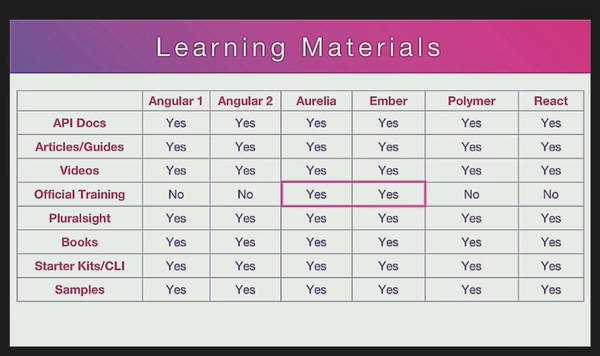Earlier this year, we started offering some of our classes (most prominently Angular Boot Camp) online as well as in person. We intentionally waited to offer an online option until our classes were well proven as live, in-person events, with the goal of making the online experience capture as much of the quality from the personal event as possible.
Many prospective students have emailed or called us to ask about the trade-offs between the in-person versus online options. Here are our thoughts.
Hands-on Workshops
Our classes offer and include lots of hands-on experience, pausing after every few units of teaching for an exercise. During in-person classes, our instructors walk back and forth around the room, keeping an eye on everyone’s progress and offering assistance. In offering an online experience, we were concerned about how well this aspect of the class would transition, and explored numerous approaches to capturing this experience online.
Our solution is to invite each student to use a “cloud IDE” to perform the exercises, and then to make their cloud workspace available to our instructors. Using this approach, we have found that (surprisingly) our ability to assist students during workshops is possibly even better online than it is in person. This is such a compelling result that we sometimes even persuade in-person students to use such an online IDE.
Interactivity
An in-person class can be highly interactive, and ours are especially so, because all of our trainers primarily work as practitioners – question-and-answer is our specialty. So far, students have been very pleased with the level of interactivity in online classes also. We keep a chat room open during online classes, to make it especially easy to interject a question; in fact sometimes it is even a bit easier to ask a question in an online class, because the student can always do so without risk of interrupting the instructor, and instructors can look back at the online chat record to avoid skipping over an important question.
On the minus side, back-and-forth discussion is slightly less fluid online; so overall is probably a wash.
Long, Hard Questions
At in-person classes, our instructors often engage in deeper side conversations about long or difficult questions during breaks or before class. This does not work as well online, so if you have a lot of hard questions, an in-person class is probably the better option.
Depth and Breadth
Given the same total class time, we typically cover slightly more material in our in-person classes. We don’t have a metric to say whether this is a trade-off with the depth of coverage, or whether it is a consequence of slightly more time-consuming transitions between lecture and workshop, around breaks, etc. with online classes.
Overall Results

Overall, we estimate that our online classes are at least 85% as good as “being there”, and possibly up to 95 or 100%. We encourage students to choose between the two options based primarily on their own travel availability, timing, etc.; we have plenty of satisfied students for each.



